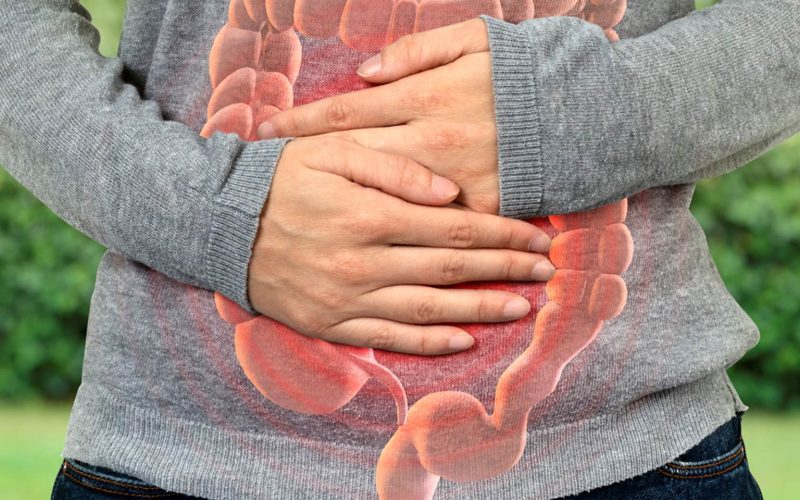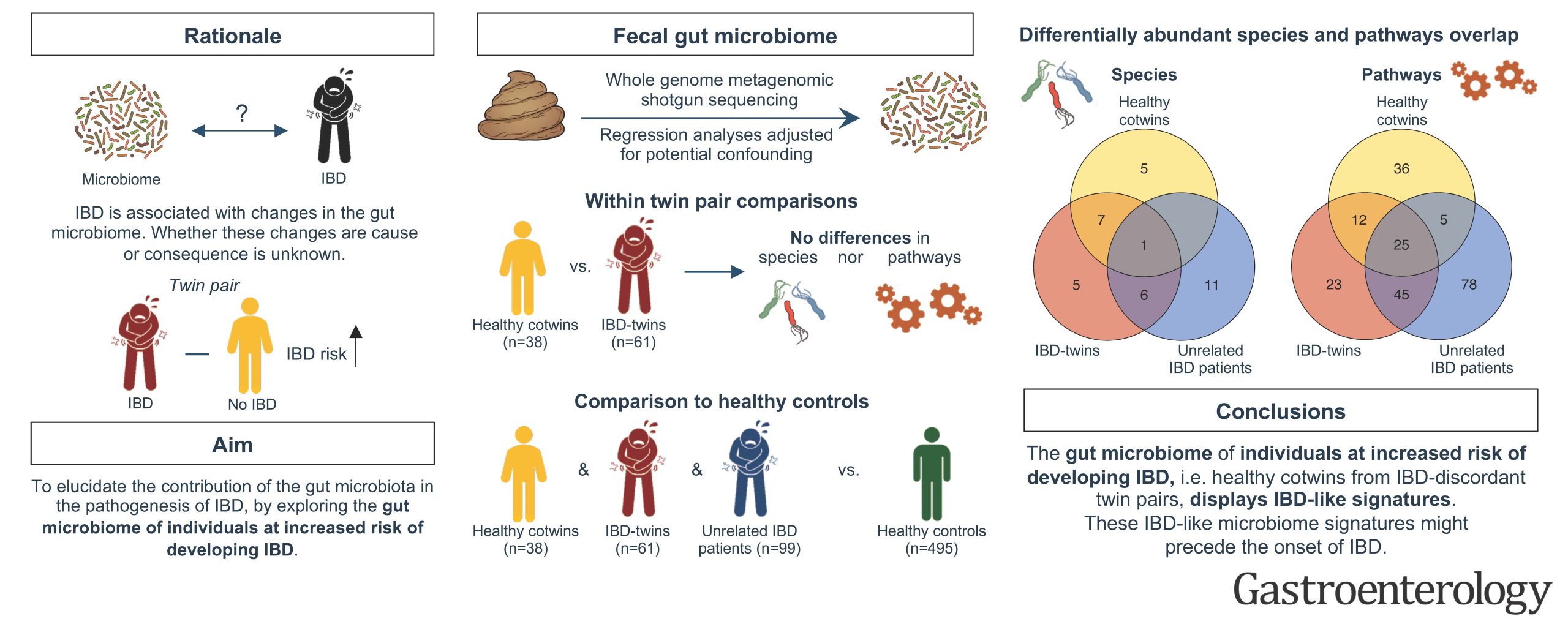The gut microbiome of people at increased risk of developing inflammatory bowel disease (IBD) displays IBD-like signatures. The presence of such IBD-like microbiome signatures might precede the onset of IBD. This was concluded from a study, recently published in Gastroenterology, investigating the intestinal microbiome in IBD-discordant and IBD-concordant twin pairs coordinated by UMC Utrecht in collaboration with the UMC Groningen, Netherlands Twin Register and a consortium of Dutch IBD centers.
Over the years, a consistent body of evidence has accumulated supporting the association between gut microbiota and inflammatory bowel disease (IBD). Differences have been observed in the microbiome of Crohn’s disease (CD)) and ulcerative colitis (UC) patients compared to individuals not affected by IBD. It is, however, unclear whether reported changes in the gut microbiome are cause or consequence of IBD. It has been reported that healthy cotwins with an IBD-affected twin are at increased risk of developing IBD, with reported concordance rates in monozygotic twins up to 64 percent for CD and 28 percent of UC.
Eelco Brand, MD (Department of Gastroenterology and Hepatology and Center for Translational Immunology, University Medical Center, Utrecht) and colleagues studied the gut microbiome of IBD-discordant and -concordant twin pairs, which offers the unique opportunity to assess individuals at increased risk of developing IBD. Because twins share (childhood) environment and genetic factors, studying the gut microbiome in this setting could provide important insights in its role in the pathogenesis of IBD.
In this cross-sectional study (the largest twin study in the field of IBD and the microbiome), surprisingly, no significant differences were observed in the relative abundance of microbial species and metabolic pathways between healthy cotwins and their IBD-twins. Compared to healthy controls, a number of species and pathways were found to be differentially abundant in healthy-cotwins, IBD-twins and unrelated IBD patients, respectively. Of these, 42 percent and 5.6 percent of species, and 35.2 percent and 19.6 percent of pathways overlapped between healthy cotwins and IBD-twins, and between healthy cotwins and unrelated IBD patients, respectively. Many of the reported overlapping species and pathways have previously also been associated with IBD.
Prof. dr. Bas Oldenburg, principal investigator and gastroenterologist at UMC Utrecht says: “We know that in IBD patients the microbiome differs from that of healthy people. However, we do not know whether changes of the microbiome precede IBD or vice versa. By performing the study in twins, we can better assess the order of events by excluding factors such as genetics and environment.”
Investigator and PhD candidate Eelco Brand concludes: “The shared changes in species and metabolic pathways that we found include several potentially inflammation-related species and pathways, suggesting a mechanistic role for the gut microbiome in the development of IBD in the preclinical phase. Based on our findings, it is tempting to speculate that changes in the gut microbiome of healthy cotwins, i.e. individuals at increased risk of developing IBD, precede IBD development and are involved in its pathogenesis. However, these findings deserve further investigation to confer a causal relationship, preferably in longitudinal studies with microbiome data before IBD diagnosis.”
Fecal samples were obtained from 99 twins (belonging to 51 IBD-discordant and –concordant twin pairs), 495 matched healthy controls, and 99 unrelated IBD patients. Whole-genome metagenomic shotgun sequencing was performed. Taxonomic and pathway composition was compared between healthy-cotwins, IBD-twins, unrelated IBD patients, and healthy controls with multivariable (adjusted for potential confounding) generalized linear models.
Brand EC*, Klaassen MAY*, Gacesa R, Vich Vila A, Ghosh H, de Zoete MR, et al. on behalf of the Dutch TWIN-IBD consortium and initiative on Crohn and Colitis. Healthy cotwins share gut microbiome signatures with their inflammatory bowel disease twins and unrelated patients. Gastroenterology 2021;160:1970-1985
*Shared first authorship

